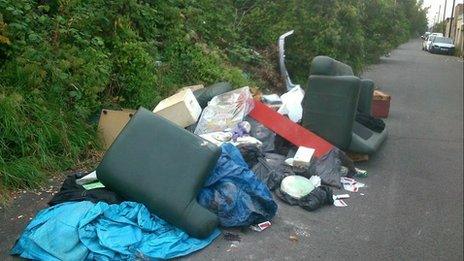Fly-tipping clean-up costs £2.1m in Wales
- Published
Torfaen council, which saw a 53% increase in fly-tipping, encourages incidents to be reported via an app
Fly-tipping cost about £2.1m to clean-up last year, latest figures, external show.
There were 36,259 incidents of rubbish dumped illegally in 2015-16, up 14% (4,546 extra cases) on the year before.
However, fly-tipping has fallen in Wales from a peak of 61,995 incidents in 2007-08 to around 31,700 in 2014-15.
On Tuesday, Conwy council meets to discuss introducing charges, external for dumping certain types of rubbish at household waste sites and a report said concern about fly-tipping was "inevitable".
The report to the cabinet committee said authorities are not obliged to collect for free items known as "DIY waste", like old kitchen units and bathroom suites, as well as soil, rubble and garden fences.
It said introducing "reasonable charges" could raise £120,000 to boost council coffers although "concerns about fly-tipping will be raised".
"Most people will manage their waste in a responsible manner and it is only a small minority who decide to break the law," it said.
Fly-tipping is a criminal activity punishable by fines of up to £50,000 or prison and culprits could also face a tax under the Welsh Government's new Landfill Disposals Tax Bill, external.
Across Wales, the number of incidents has almost halved in recent years, although there has been a spike for the year 2015-16 which has been attributed to different factors.
And estimated clearance costs have risen from £1.8m to £2.1m comparing year on year figures.
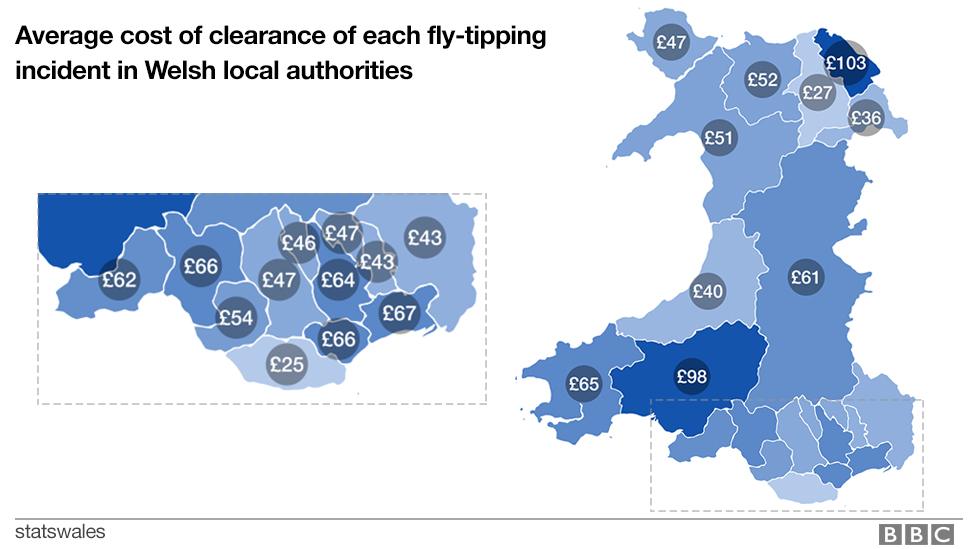
Torfaen council, which saw an increase of 53% from 590 to 905 incidents, said it has been encouraging incidents to be reported on online, external and via its Torfaen app, external which allows users to pinpoint a location and photograph the rubbish.
Pembrokeshire council, which recorded a 47% increase from 818 to 1,199 incidents, said it now logged black bag household waste as fly-tipping if it was put outside homes on the wrong day.
"The aim is to record and build up a picture of where problems exist across the county so that we can identify and target any hotspots," said a Pembrokeshire council spokesperson.
Wrexham recorded the least amount of incidents (158) last year while Cardiff council had the most (6,214), followed by Swansea (6,040).
Powys had to clean-up 1,019 fly-tipping cases and there were 390 issues in Ceredigion.
'What's being done?'
Torfaen councillor John Cunningham, executive member for neighbourhood services, said: "Fly-tipping is a mindless crime against our communities and our countryside and clearing it places a significant drain on our limited council resources.
"Over the past year we've been actively encouraging people to report fly-tipping using our mobile app when they are out and about and have linked this technology with our frontline workers who receive information on the move ensuring almost every incident is cleared within the five day target and in some cases, just a few hours.
"Last year we also rolled out a smaller refuse bin for our residents which, as expected, generated a short-term increase in fly-tipping as people adjusted to the new system.
"However, it should be noted that we have also seen an increase in recycling rates last year as the vast majority of residents responded positively to the changes."
Welsh Liberal Democrat local government spokesperson Peter Black said: "If councils are spending such an eye-watering amount of public money on clearing fly-tipping, we need to ask what's being done to prevent people from fly-tipping.
"This last year has seen the lowest number of successful prosecution outcomes, external in any year since 2006-07 despite an increase of more than 4,500 in the number of reported incidents.
- Published10 December 2016
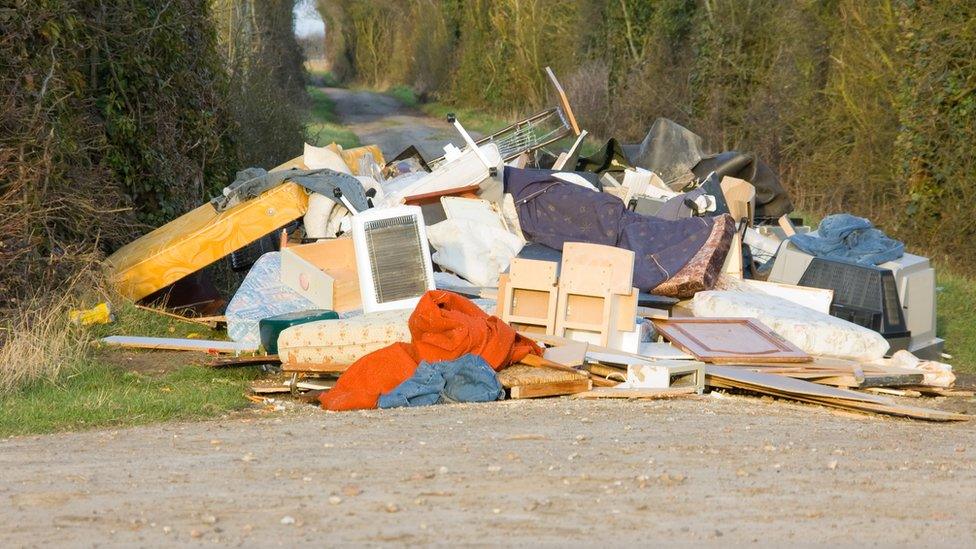
- Published28 November 2016
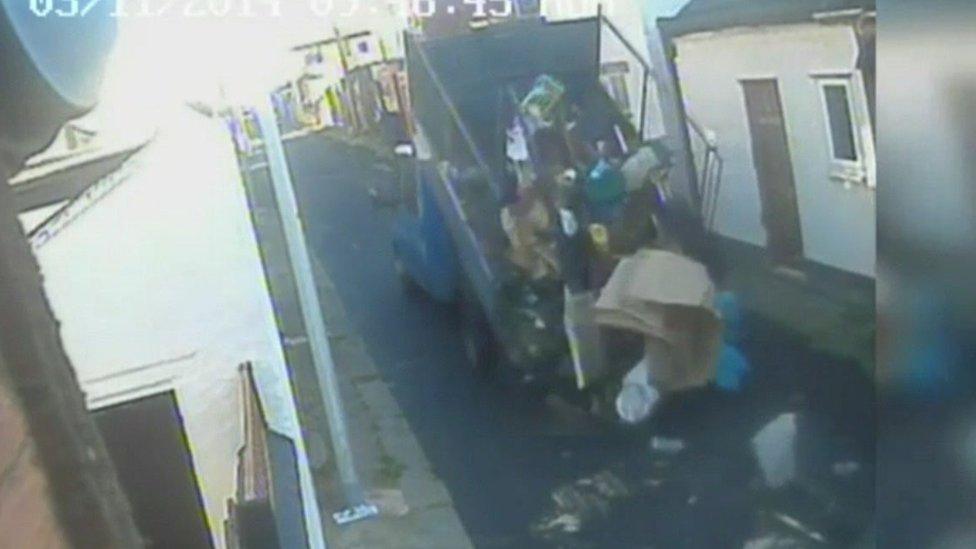
- Published27 August 2016
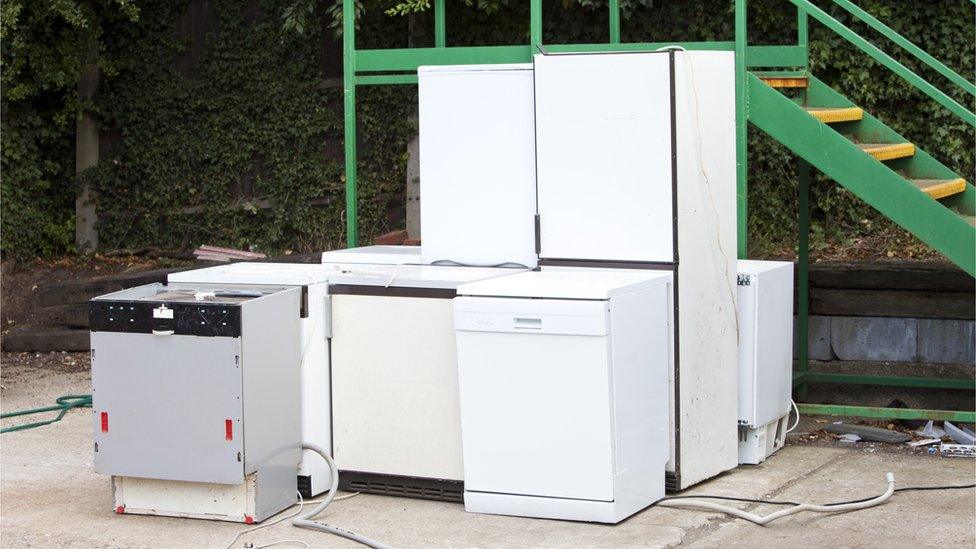
- Published29 December 2014
